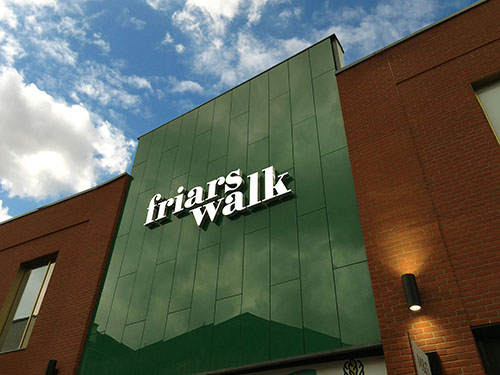Our Blog

Subscribe to our blog
Search
Outdoor and indoor signage both have roles to play in brand recognition, sales, and information giving. If want to make sure you get the best value from your investment in signage, here is what you should bear in mind as you weigh up indoor digital signage against outdoor displays:
Brightness and Resolution
Display brightness and resolution matter to existing - as well as prospective - customers. With indoor digital signage displays in shopping centres, churches, sports arenas, etc. high resolution is key for clear close-up views, especially if they are placed at eye level. So, indoor displays tend to be smaller and less bright, but with higher resolution than outdoor ones.
Display Screen
Outdoor displays are designed for round-the-clock sun exposure. So, outdoor digital signage manufacturers will outdo themselves with very efficient, bright, and responsive 10,000-nit LED screens that adjust their brightness and age slowly and gradually. Indoor units tend to come with LCD displays, which work better with fast-changing content on a smaller scale, and don't function well in the sun.
Materials
Outdoor digital signage prices reflect not just the size of the display, but also the fact that it's engineered to withstand inclement weather. It might come with all-round silicone encapsulation, hard-wearing louvre blinds, and extruded aluminium cabinets. Indoor digital signage displays don't need this added protection, so they're lighter, less resilient, and they tend to be cheaper in terms of materials.
User-Friendliness
With indoor digital signage displays, quick software integration is a must, so they are designed with multiple input sources, and they run on flexible, user-friendly, and updatable software. As for their alfresco broadcasting counterparts, outdoor digital signage companies tend to sell them with proprietary software and robust controllers for use by admins who can control them remotely and perform diagnostics by themselves.
Functionality
Interior displays don't come boxed up in cabinets, so they can feature a wider range of configurations than outdoor displays. So, even though outdoor digital signage prices are higher, they are no match for indoor boards in terms of versatility. The latter can be set up onsite panel by panel, they work well in a variety of settings, and they fulfil the architectural requirements of even the most grandiose display projects. Outdoor displays can be mitred and displayed radially, but they usually need to be assembled on the factory floor.
Target Audience
Outdoor displays aim to lure prospective customers, while indoor ones speak to the specific needs of a consumer who is already invested in the product or brand. For that reason, indoor displays tend to be more elaborate, featuring a more detailed value proposition, and the content may be less salesy and more practical (i.e. informing customers where the tills are, what products are on offer, how to qualify for offers and discounts, etc.). They run on software that enables tech savvy people to order, browse, and be entertained. So, outdoor digital signage should make the establishment stand out from its neighbours, but its design must also blend in with the style of the local area. Indoor signage, by contrast, can be customised to interact with customers and match the style of the brand. In short, outdoor displays intrigue, while indoor ones inform.
Compliance
Outdoor digital signage doesn't attract special health and safety requirements once it's been set up. However, indoor signage used by employees for more than an hour at a time (e.g. touchscreen kiosks services by a shop assistant) are subject to DSE guidance from the Health and Safety Executive. Also, under the Equality Act 2020, in the UK indoor signage is considered a physical feature that must be accessible, displayed out of the way, mounted about 1.2m-1.7m from the floor, and accompanied by braille, tactile lettering, and/or audio signalling. Also, any signage should be made available to the visually impaired, possibly via auxiliary aids.
Cost
Indoor and outdoor digital signage price points depend on every one of the factors mentioned above, as well as their brand and overall quality. But it's not unusual for digital signage companies to hike up prices before major events (e.g., music and film festivals, fashion shows, product launches).
What Next?
At Image Technique, we design, manufacture, and install a variety of high quality digital outdoor and indoor displays for clients in the retail and entertainment sectors. To find out more and to discuss your requirements, please give us a call today.



